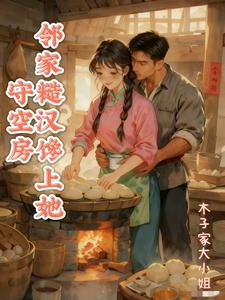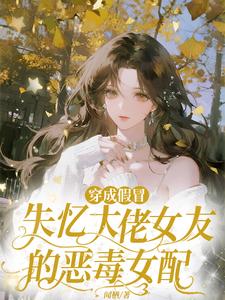Shen Miao led her two "little helpers" out to buy various supplies. Today, coarse flour was still ten wen per dou, while fine flour cost thirty wen per dou. Shen Miao had previously calculated that one dou was roughly equivalent to a little over nine Song dynasty jin, which translated to about eleven jin in modern measurements. Buying coarse flour and sifting it herself was much more economical, though it required extra effort.
Red beans and mung beans were both eight wen per dou, quite affordable as well. Sugar was cheaper than salt—thirty wen per dou compared to salt, which cost around sixty wen per dou.
The Song dynasty Shen Miao found herself in was already vastly different from the Northern Song she once knew. The technique of adding ceramic shards to sugar syrup to separate and refine white sugar had long been popularized, greatly increasing sugar production and making it affordable for common folk.
But it wasn’t just sugar. Yesterday, while setting up her morning market stall, she overheard vendors and customers passionately discussing state affairs. That was how she learned that this version of the Song dynasty stood in a three-way balance with the Liao and Jin dynasties to the north, while the Western Xia had yet to emerge. Thanks to the Song’s strength and stability, the Dangxiang tribes remained a vassal territory under the Song’s five prefectures, with Li Yuanhao and his descendants serving as military governors instead of declaring themselves emperors and founding the Western Xia.
Though the Jin dynasty had risen to power, it was burdened by heavy tributes and an irreconcilable feud with the Liao. Just as in history, they sought an alliance with the Song to resist the Liao. However, the current Song emperor was unusually shrewd, understanding the principle of "when the lips are gone, the teeth will be cold." He skillfully maneuvered between the Liao and Jin, playing them against each other.
The Liao and Jin were like clams locked in a struggle, while the Song aimed to be the fisherman, not another clam. Whenever the Liao gained the upper hand, the Song cooperated with the Jin to strike back. When the Jin dominated, the Song secretly traded with the Liao, supplying them with food and weapons…
Now, the Liao served as a barrier preventing the Jin from advancing south. Meanwhile, the Song expanded its military and even learned to drill "fire wells," establishing specialized workshops like the "Fierce Fire Oil Workshop," the Northern and Southern Armories, and the Bow and Crossbow Institute to develop firearms and advanced weaponry. This ensured that neither the Liao nor the Jin gained an advantage when they broke treaties and raided the borders.
Listening to the men’s animated chatter, Shen Miao pieced together that this version of the Song had discovered surface-level petroleum and even applied it to military equipment, creating incendiary projectiles for siege warfare.
Distracted by the fascinating discussion, she nearly burned her pancakes.
Now, the Liao, Jin, and Song were locked in a stalemate—a delicate balance of power. Unfortunately, the Song from Shen Miao’s original timeline hadn’t grasped this strategy, foolishly making deals with wolves and suffering under a succession of inept rulers…
Here, despite external threats, the Song enjoyed peace, blessed by consecutive years of abundant harvests and smooth canal transport. Grain prices in Bianjing had stabilized, allowing Shen Miao to purchase supplies without worry.
After comparing several grain shops, Shen Miao settled on "Yongfeng Grain Shop," where the coarse flour was the cleanest, free of excess gravel used to cheat customers. There, she bought three dou of coarse flour, three dou of red beans, two jin of sugar, and two dou of bean oil. The shopkeeper was a savvy businessman—not only did he round down the price, but he also offered to have a clerk deliver her purchases to her doorstep.
After buying the red beans and flour, she stopped by the nearby Wang Family Dairy to inquire about milk prices. Upon learning it cost two hundred fifty wen per jin, Shen Miao smiled politely and immediately walked away.
She mentally crossed "making milk-scented red bean buns" off her list—milk was simply too expensive here.
Milk in this Song dynasty was outrageously priced!
But then again, the Song’s territory had little pastureland for raising cattle, sheep, or horses. Most oxen were reserved for plowing, making dairy cattle rare. When she thought about it that way, the high price made sense.
Sister Xiang solemnly tucked the receipt from Yongfeng Grain Shop into her little pouch before eagerly looking up at Shen Miao. "Elder Sister, what delicious thing are you making next?"
Shen Miao chuckled—she could tell the girl was craving something tasty. "When we get home, the first batch will be for you to try."
Sister Xiang beamed, satisfied. Whatever her elder sister made would surely be delicious!
Shen Miao had already decided: tomorrow, she wouldn’t pair her stall’s offerings with sausages. Curing sausages required too much salt and spices, driving up costs.
Instead, she settled on making a simple yet delicious treat from her past life—red bean pull-apart bread. Since her scallion pancakes were savory, adding a sweet option would cater to both taste preferences. Of course, someone like her, who enjoyed all flavors, would probably buy both.
The cost of red bean pull-apart bread was much lower than sausages.
Based on her past experience making buns, one jin of red beans, after soaking and grinding, yielded about two jin of filling. Each loaf would need roughly two liang of filling, meaning one jin of flour, one jin of red beans, an egg, and two liang of sugar could produce seven or eight loaves.
Excluding labor costs and accounting only for yeast, oil, and fuel, each loaf’s production cost was roughly two wen.
Though most residents of the inner city—especially those near Jinliang Bridge, close to the Grand Xiangguo Temple and Imperial Street—were relatively well-off, with countless nobles and officials living nearby, vegetarian fare still couldn’t be priced too high. After some thought, Shen Miao decided to sell each loaf for eight wen. If customers wanted it sliced, each piece would cost three wen.
She’d start with fifty loaves tomorrow. With the supplies she’d bought, she should have enough for several days.
The best part? These were incredibly easy to make.
In her past life, with an air fryer, even a kitchen novice could make soft, fluffy red bean pull-apart bread without kneading dough. But here in the Song dynasty, with her earthen oven still drying, she had to make do with a baking stove.
The uneven heat of the baking stove would test her skills.
With her stall plans settled, Shen Miao took Ji Brother to buy a set of brushes, ink, paper, and inkstones, along with a large bamboo basket, ten large bamboo steamers, and a carrying pole. On their way back, they passed a bookstore. She initially wanted to buy him a few books, but the prices were staggering—a full set of the Four Books and Five Classics cost several strings of cash.
Ji Brother said, "Elder Sister, don’t buy them. I know Shopkeeper Zhou at the Lanxin Bookstore near the South Gate. If you bring your own supplies, you can pay two wen to copy books there. It takes three to five days to copy the Analects, but it’s cheaper than buying a printed copy. When I studied under Teacher Liu, everyone made their own copies."
A brilliant idea! Shen Miao decided to let Ji Brother start copying tomorrow. Though labor-intensive, copying books was a triple benefit—practicing handwriting, studying the text, and obtaining a personal copy.
Once back, she sent Sister Xiang to build a little shelter for their chicks using broken tiles, then soaked the red beans. Next, she fried chicken cutlets, pork cutlets, and sliced cucumbers, prepping all the ingredients for tomorrow’s scallion pancakes. With everything ready, she turned in early for the night.
The next day, she rose before dawn again. First, she refried the pork cutlets, then began making red bean buns. Since freshly baked buns tasted best, she had only prepared the red bean filling and sifted the flour the night before, waking up early specifically to bake them.
The sifted fine flour, eggs, yeast, sugar, and water were mixed into a dough. A splash of soybean oil was added, and she kneaded until the dough could stretch into a thin membrane. After letting it rise, she divided it into portions, spread the red bean paste, cut the lower half into strips, then rolled it up from top to bottom before placing it into the preheated oven… While Shen Miao bustled about in a whirlwind, Ji Brother rubbed his sleepy eyes and emerged, silently squatting down to help tend the fire.
"Did I wake you?" Shen Miao casually picked up a piece of sliced chicken cutlet from the table and popped it into Ji Brother’s mouth.
"No, the smell woke me," Shen Ji replied, chewing as he fanned the oven with a palm-leaf fan.
Shen Miao smiled. The aroma of baking bread did fill the entire house, warm and comforting—just like the scent from bakeries she had loved in the past.
By the time Aunt Li’s rooster hopped onto the wall and crowed, Shen Miao had finished. She rubbed her sore arms and waist, then glanced outside—the pitch-black sky had faded to a pale gray, and the eastern horizon was brightening. It was time to set up the stall.
Sister Xiang had also been woken by the delicious smells. She dressed herself and came to Shen Miao with hair ribbons, asking her to style her hair. Ever since Shen Miao had started braiding her hair in different ways—fishtails, twin ponytails, bow-topped buns, princess braids—Sister Xiang had begun to disdain the messy "bird’s nest" Ji Brother used to tie for her.
Shen Miao sat her on a small stool and quickly fashioned two round flower-bud buns tied with red ribbons. Sister Xiang touched the little buns behind her ears, then ran outside to peer into the large water vat by the kitchen, using it as a mirror. The moment she saw her reflection, her eyes crinkled into delighted crescents.
"Only Elder Sister can do hair this pretty!"
After finishing with Sister Xiang, Shen Miao dragged Ji Brother over for a hairstyle too. Over the past few days, she hadn’t had time to tidy him up, so he’d been tying his hair into two topknots himself, which looked rather comical paired with his serious expression.
Children’s hairstyles at this age were often amusing—some had their heads shaved bare except for three patches of hair on the crown, left and back, braided or twisted into little tufts called "quail horns."
Ji Brother hadn’t been shaved, but after recovering from his illness, he only knew how to tie two topknots.
Shen Miao decided to give him a half-up bun.
At his age, his hair had only been growing out for a few years, barely reaching past his shoulders. She gathered what she could, leaving the shorter strands at his temples and forehead to fall freely. The rest was pulled high into a neat bun tied with a blue cloth strip matching his clothes. She deliberately left the ends long, letting them flutter down his back. Once done, she turned him this way and that, inspecting her work until Ji Brother blushed like a boiled shrimp. Satisfied, she nodded.
The Shen family had fine features and fair skin, and this hairstyle made Ji Brother look even more youthful—his delicate brows and eyes truly stood out.
Today, Shen Miao didn’t borrow the Gu family’s cart. The large basket and carrying pole she’d bought the day before came in handy. Now that the house had walls and a gate, there was no need to leave anyone behind to guard it. She loaded the ingredients into the basket to carry on her back, tied the table and oven to the pole to shoulder, and steadied the pole with one hand. Sister Xiang carried the stools, while Ji Brother hauled a basket of charcoal.
The three of them set off in high spirits to earn their living.
Once the stall was set up, Shen Miao handed Ji Brother a small basket containing two red bean buns cut into pieces, instructing him to share some with Shopkeeper Zhou and the assistants at the bookstore before shooing him off to his copying work. Sister Xiang stayed by her side, tasked with handling payments so Shen Miao could focus on making the pancakes.
The moment she arrived, customers who had missed out the day before were already waiting.
The burly, free-spending man from yesterday returned, ordering three pancakes with double sauce, and Shen Miao got busy. Sister Xiang sat obediently on a small stool by the table, nibbling on an enormous red bean bun—specially made by Shen Miao, larger than her own head.
The bun had been brushed with sugar syrup before baking, giving it a golden, slightly crispy crust. Each bite was a contrast of crisp outside and fluffy inside, the bread so soft it stretched into strands when pulled apart. The red bean paste was smooth yet retained a slight graininess from being hand-crushed, adding layers of texture.
Sister Xiang wore the pale yellow dress Shen Miao had made for her, her two little buns tied with red ribbons, the ends fluttering by her ears and making her plump cheeks look even rounder and softer.
She ate with single-minded focus, clutching the giant bun in both hands, taking bite after bite until red bean paste smeared the corners of her mouth—like a little hamster who’d tumbled into a rice bin.
A child like Sister Xiang, who ate so heartily and was so adorably chubby, was every grandparent’s dream grandchild. Her enthusiastic munching drew the attention of many elderly passersby, as well as children her age who tugged at their parents’ sleeves, staring wide-eyed and drooling.
"What a delightful child, eating so well and so fair-faced," remarked an old woman leaning on her cane, watching Sister Xiang devour her meal with a smile. "Such a good appetite! A hearty eater is blessed—bound for fortune!"
Shen Miao chuckled, handing two "full house" pancakes to the burly man with a reminder to enjoy. Then she passed a bamboo cup to Sister Xiang. "Drink some tea, don’t choke."
It was honeyed jujube tea, brought earlier by the plump lady next door for Sister Xiang.
The little girl obediently sipped the tea before resuming her attack on the giant bun.
"That smells wonderful, Mistress Shen. What is it?" The old woman couldn’t resist sniffing the lingering aroma of baked bread. "Such a sweet, fragrant scent."
"These are red bean crusted baked buns," Shen Miao offered a name that fit local conventions, lifting the thin cotton cloth covering the buns. "Most buns are steamed, but I thought baking might taste good too, so I tried it. My little sister’s eating a whole one, but each loaf can be cut into four pieces—enough for a family of three with some tea for breakfast. Just eight coppers for a whole loaf, or three coppers per piece. See? Made with finely sifted flour, eggs, and sugar, packed with red bean paste. Freshly baked this morning—delicious even the next day! In this weather, they’ll keep for two or three days!"
With a small knife, she sliced off a piece, diced it neatly, and offered samples.
Free treats were always snatched up in a flash. The old woman who’d asked first managed to grab a piece—sweet, soft, the fragrance blooming on her tongue. She wanted more, but the plate was already empty.
Not only that, but customers who had already tasted Shen Miao’s hand-pulled pancakes wasted no time in placing their orders: "I’ll take two—here’s sixteen coppers!"
"Pack four for us—this flavor is amazing!"
The red bean buns sold quickly, and Shen Miao hurriedly called Sister Xiang over to handle the money. Reluctantly, Sister Xiang carefully placed her large bun in the basket under Shen Miao’s table before climbing onto a stool to obediently collect the coins one by one, dropping them into the earthen jar.
Just then, Wei Yao, the owner of the pastry shop across the street, happened to pass by with his donkey cart while delivering pre-ordered wedding cakes to a regular customer. But the rich, unfamiliar aroma of wheat—so enticing it could be smelled from blocks away—made him stop in his tracks.







